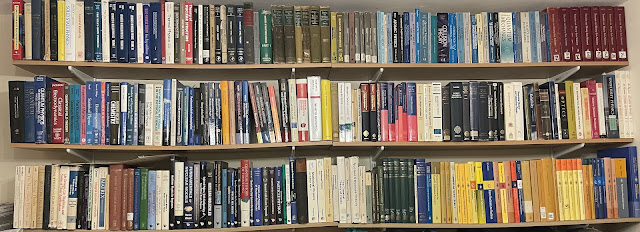I recently submited my first comment on another research paper. The paper I commented on is "Full quantum eigensolvers based on variance" by Li et al., Phys. Scr. 99, 095207 (2024). It caught my eye because I am interested in variance-minimization techniques in quantum computers, and have used them myself to solve some problems.
The paper of Li used as one example the case of the deuteron nucleus as given in a highly-cited paper by Dumitrescu et al., but unfortunately they made several mistakes when applying it, and I wanted to make a comment to help correct the record.
In brief, though the Dumitrescu work deals with a deuteron nucleus and calculates the binding of a proton and neutron, Li et al. describe it as a molecular system giving results in units incorrect by orders of magnitude. The Dumitrescu Hamiltonian is a bit unusual compared with the majority of many-body quantum formalism in that it is a one-body model for a two-body system, so the deuteron is treated as a single particle, in which the number of occupied levels in an oscillator basis translates directly to the number of deuterons. Mathematically, the model can give you back a "zero deutron" solution in which nothing is present. The energy associated with that is zero, and the result is "trivial" in that there is no actual calculation to be done to get it. Li et al. appeared not to understand any of this, and presented results as if they were all deuteron results, including the result with no deuterons present. Thanks to some rounding, they also had the no-particle solution at a non-zero energy. They showed how remarkably quickly their algorithm found this and other trivial solutions, not realising that these "solutions" could not test their algorithm at all.
This was one example among a few in their paper, but it seemed like enough for a comment. Not to say that the whole paper was wrong, but to flag up some things that should not be propagating through the open literature.
So, I wrote a brief comment paper and sent it to Physica Scripta. I got a rejection from them, and as per IoP journal policy, there is no right to query a rejection. If there was, I would have argued back that the referee actually agreed that misidentifying units and nuclear nature were problems in the paper (although the referee thought it possibly a "clerical error" and that it didn't matter because someone else had made the same mistake before them!). The referee appeared not to understand probably the most important point, or just did not address it in the referee report, that the nature of the model and its trivial solutions was not understood by Li et al. They concluded that in any case, mistakes in one example did not justify the publication of a comment. Before submitting the comment, I checked the Physica Scripta guidance about comments to check that indeed only a single problem sufficed to justify a comment and not a slew of problems.
Well ... I could try to find the email address of the editorial board, since the notification email I got with the judgement is from a junk address at the editorial management system, and present my case, but I feel like writing the comment paper has been shouting into the void enough, and so instead I'm writing this blog post where at least it is on the record.
edit: Let me add, too, that I couldn't put the comment paper on the arXiv because they do not allow such things (comments on papers that are not themselves in the arXiv). It would be nice to find somewhere to post the paper.
later edit: I stuck the comment on my institution's repository, so now it has a doi and can be cited: “Comment on “Full quantum eigensolvers based on variance” by Li et al.”, P. D. Stevenson, report, University of Surrey (2024) doi:10.15126/901326
